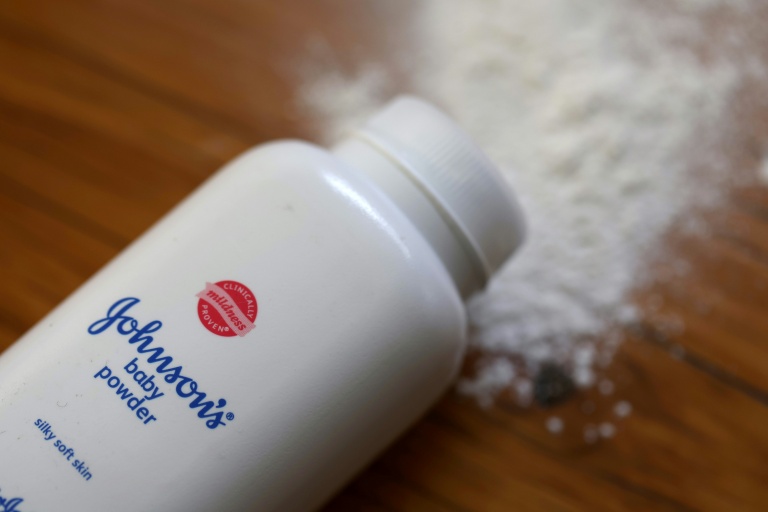Top Stories
Thousands Sue Johnson & Johnson in UK Over Talc Cancer Claims

BREAKING: Thousands of UK claimants have initiated a major legal battle against Johnson & Johnson over allegations linking its talcum powder to cancer diagnoses. Lawyers announced that approximately 3,000 individuals are suing the pharmaceutical giant, claiming exposure to asbestos in its Baby Powder led to ovarian cancer and mesothelioma.
The lawsuit was filed in the High Court in London and seeks an astounding £1 billion (around $1.3 billion) in compensation. This legal action reflects a growing trend, as Johnson & Johnson faces numerous similar lawsuits across North America, indicating a widespread concern over the safety of its talc products.
According to KP Law, the claims span from 1965 to 2023, asserting that Johnson & Johnson was aware of the carcinogenic properties of its talc for over 50 years yet continued to market it for profit. The firm stated, “Johnson & Johnson chose to keep it on the market in the pursuit of profit,” despite knowing the risks involved. Notably, the company only withdrew its mineral talc from the UK in 2023, years after it was taken off shelves in North America.
A spokesperson for Johnson & Johnson redirected inquiries to its former consumer health division, Kenvue, which was separated from the company in August 2023. They stated, “As a part of that separation, Kenvue retained the responsibility and any purported liability for talc-related litigation outside of the United States and Canada.”
In response, Kenvue emphasized the safety of J&J’s Baby Powder, asserting that it is “backed by years of testing by independent and leading laboratories, universities, and health authorities in the UK and around the world.” They claim that the high-quality cosmetic-grade talc used in their products adheres to regulatory standards, does not contain asbestos, and is safe for consumers.
The stakes are high for Johnson & Johnson, as US courts recently rejected an offer to settle around 90,000 civil complaints related to ovarian cancer for approximately $8 billion over 25 years, without admitting liability.
Adding to the gravity of the situation, the World Health Organization’s cancer agency classified talc as “probably carcinogenic” for humans last July. A comprehensive study published in 2020, examining 250,000 women in the United States, found no statistical link between talc use on the genitals and the risk of ovarian cancer, but public concern persists.
As this legal battle unfolds, the implications for Johnson & Johnson could be monumental, not just financially but also in terms of public trust. The outcome of this case could influence how talc products are viewed and regulated in the future, potentially affecting millions of consumers.
Stay tuned for further updates as this story develops. The impact of these allegations and the legal ramifications for Johnson & Johnson could redefine the landscape of personal care products globally.
-

 Politics4 weeks ago
Politics4 weeks agoSecwepemc First Nation Seeks Aboriginal Title Over Kamloops Area
-

 World5 months ago
World5 months agoScientists Unearth Ancient Antarctic Ice to Unlock Climate Secrets
-

 Entertainment5 months ago
Entertainment5 months agoTrump and McCormick to Announce $70 Billion Energy Investments
-

 Science5 months ago
Science5 months agoFour Astronauts Return to Earth After International Space Station Mission
-

 Lifestyle5 months ago
Lifestyle5 months agoTransLink Launches Food Truck Program to Boost Revenue in Vancouver
-

 Technology3 months ago
Technology3 months agoApple Notes Enhances Functionality with Markdown Support in macOS 26
-

 Lifestyle3 months ago
Lifestyle3 months agoManitoba’s Burger Champion Shines Again Amid Dining Innovations
-

 Top Stories2 months ago
Top Stories2 months agoUrgent Update: Fatal Crash on Highway 99 Claims Life of Pitt Meadows Man
-

 Politics4 months ago
Politics4 months agoUkrainian Tennis Star Elina Svitolina Faces Death Threats Online
-

 Sports5 months ago
Sports5 months agoSearch Underway for Missing Hunter Amid Hokkaido Bear Emergency
-

 Politics5 months ago
Politics5 months agoCarney Engages First Nations Leaders at Development Law Summit
-

 Technology5 months ago
Technology5 months agoFrosthaven Launches Early Access on July 31, 2025




















